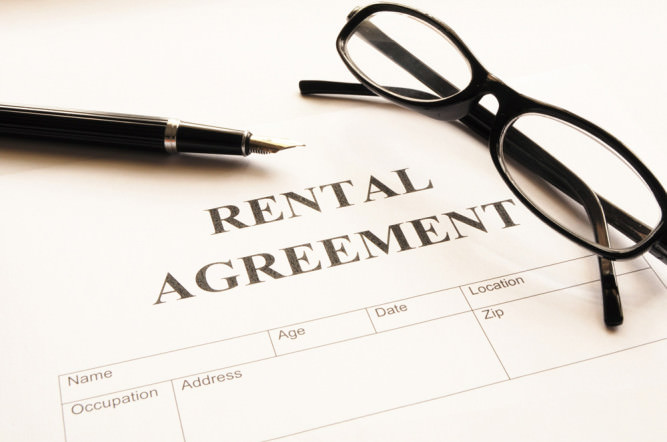
Restricting leasing through amendment
The governing documents for new communities often do not restrict the number of properties that may be leased. The reason is because many developers would like to sell properties in the new community (whether the community consists of condominiums, townhouses, or detached homes) and do not mind if investors purchase multiple properties with the intent of using them as investment rental properties. Once a community is built out, however, many homeowner-controlled boards desire to restrict leasing. This article addresses the most commonly asked questions about amendments to restrict leasing.
1. How is a leasing restriction implemented?
Adding a restriction on an owner’s ability to lease the owner’s property is almost always accomplished by adding the restriction to the governing documents via an amendment. Amendments generally require the approval of two-thirds of the owners, or seventy-five percent of the owners, or a simple majority of the owners, depending of the amendment provision for the specific community. A review of the amendment provision in the governing documents for each community on a case by case basis is necessary.
2. May an amendment restrict all leasing or put a cap on the number of properties that may be leased?
Both are acceptable. Many associations will seek to restrict all leasing in the community, while many other associations will seek to cap the number of properties that may be leased so that, for example, only ten percent or twenty percent of all properties in the community may be leased at one time.
3. What if an owner will face an undue hardship if the owner is not allowed to lease?
The vast majority of amendments restricting leasing include an undue hardship provision that will authorize a board to permit an owner to lease if the owner would otherwise suffer an undue hardship. The most common example would be if an owner moves to another state and cannot sell the property without drastically reducing the sales price. Although undue hardship provisions are widely incorporated into amendments, there is no requirement that the amendment include such a provision.
4. How does the board keep track of the number of leased properties after the amendment passes?
Requiring owners to obtain a written leasing permit from the board is the best way to keep track of the number of properties being leased and allows the board to gauge whether a leasing cap has been reached or how many properties are being leased under a hardship exception.
5. What about grandfathering current owners and/or leases?
The three most common grandfathering provisions are: (1) allowing all current leases to continue until they expire; (2) allowing the owners of any properties being leased as of the date the amendment is passed to continue to lease their properties until such owners sell or otherwise transfer ownership of their properties; and (3) allowing all owners in the community as of the date the amendment is passed to be able to lease their property at any time until they sell or otherwise transfer ownership, regardless of whether or not the owners are currently leasing their property. The second and third of these grandfathering options are intended to give owners leasing flexibility during their ownership but to restrict selling to investors.
6. Can the amendment include remedies against a tenant for violations of the governing documents?
Most leasing amendments provide that if a tenant violates the governing documents, then the board will have the right to fine the tenant and ultimately to evict the tenant. Without such a provision, the association would have no legal standing to evict the owner’s tenant.
7. Can the board collect rent from the tenant if the owner does not pay assessments?
Most leasing amendments provide that if an owner does not pay assessments, the owner assigns the monthly rent to the association in order to pay the assessments. Without such a provision, the association would need to sue the owner and obtain a judgment in order to garnish the rent.
8. Is an amendment to restrict leasing valid?
Section 44-5-60 of the Georgia Code states that no change in covenants that imposes a greater restriction on the use of property will be enforced unless agreed to in writing by the owner of the affected property. For instance, if a community passes an amendment to restrict the number of properties that may be leased, Code Section 44-5-60 could potentially be asserted that the leasing restriction will not be enforceable against any owner who rejects the amendment because such owner did not agree to the amendment in writing. In response to such an assertion, the board of directors could argue that the governing documents themselves contain an amendment provision and that all owners have agreed to the amendment provision when they purchased their properties. However, the better option would be to eliminate the owner’s Code Section 44-5-60 argument altogether. To that end, both the Georgia Condominium Act (the “Condo Act”) and the Georgia Property Owners’ Association Act (the “POAA”) state that Code Section 44‑5‑60 shall not apply to any governing documents submitted to the POAA or the Condo Act. That means an approved amendment to limit leases in a community subject to the POAA or Condo Act would be enforceable against the entire community, including those owners who did not agree to the amendment. Almost all condominiums in Georgia are subject to the Condo Act, but if the covenants for a detached home community or townhouse community have not yet been submitted to the POAA, then the leasing amendment should additionally include submission to the POAA.
These are some of the most commonly asked questions regarding leasing restriction amendments. To discuss these in more detail, or if you have additional questions, feel free to contact us.